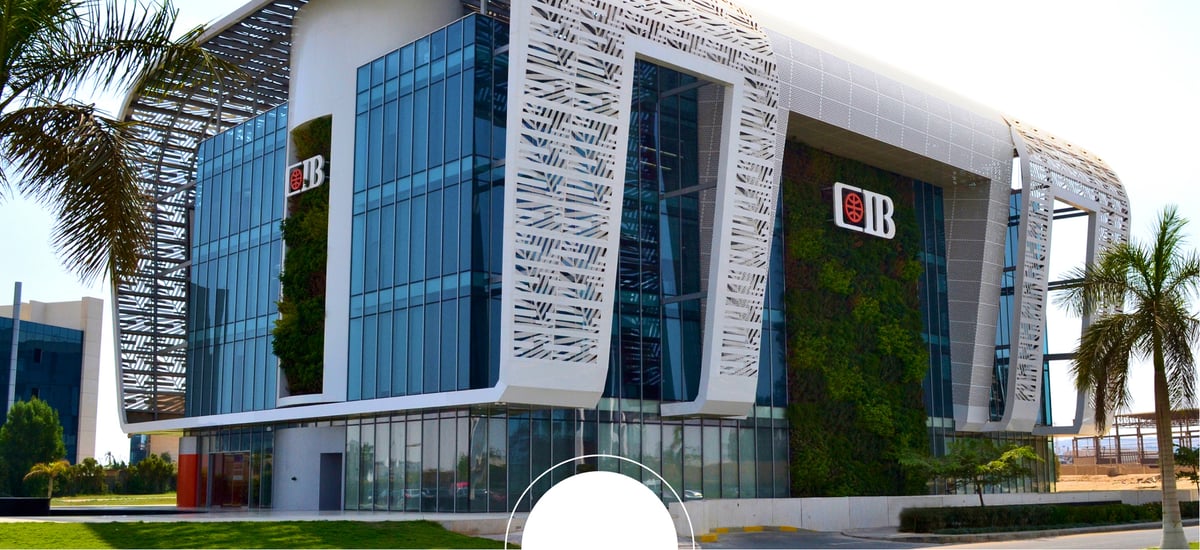
“From Africa to the World”: CIB launches climate finance initiatives on the side lines of COP27 in Sharm El Sheikh
“Brain Trust” is a new approach for Adaptation Finance with a special focus on food systems in Africa, while a Sustainable Finance Academy will serve the continent’s finance industry.
The 27th Conference of the Parties, which took place in Sharm El Sheikh, Egypt in November, gained the moniker “The Implementation COP”, reflecting its aspiration to become the climate summit that would see financial pledges of the past related to tackling climate change give way to action. Indeed, history was made. COP27 Sharm El Sheikh succeeded in achieving an agreement from industrialized countries to establish a fund to pay vulnerable nations for loss and damage due to climate change, a decision that was seen as a breakthrough in international climate negotiations.
It was also very much an “African COP”, highlighting the plight of the world’s most climate-vulnerable continent. Millions of dollars were pledged in support of the Africa Adaptation Acceleration Program - an Africa-led response initiative seeking to reduce climate change vulnerabilities through effective adaptation.

And finally, the traditionally government-heavy event saw the world’s biggest financial institutions, corporates and academia convene in parallel, complementing public sector commitments with solutions of their own. So COP27 will always be remembered as the COP that witnessed the strongest involvement to date of civil society and the private sector, adding a feeling of dynamism to the global conference. The host nation’s largest private sector bank – Commercial International Bank – is now taking the reins, spearheading climate finance across Africa.
“COP27 is a landmark in the history of COPs, reviving the power of the conference to unleash the power of civil society and the private sector in achieving global climate goals,”
— Dr Dalia Abdelkader, Chief Sustainability Officer at CIB
“For its part, CIB is focusing on redefining the role of finance in climate action, as finance is critical in helping populations face the adverse effects of climate change. Banks must be part of the solution.”

Brain Trust Adaptation Finance Framework
As COP27 focused on mobilizing climate finance towards adaptation projects in Africa, African financial institutions are playing their part: by conceiving new business models to drive private investment into upcoming sustainable African agriculture, food, and water system projects.
Food is arguably the continent’s most urgent priority. Still recovering from the economic and health shocks of the Covid-19 pandemic that drove more than 25 million people into poverty – the equivalent of the entire population of Australia – Africa’s situation has become more precarious still due to global food supply and price shock caused by the Ukraine conflict: the continent imports more than 80 percent of its food and three quarters of the income of its poorest groups is spent on food.

CIB’s “Brain Trust” framework seeks to mobilize financing from African financial institutions, prove the business case of adaptation projects, and help close the adaptation finance gap – resources needed to adapt to the adverse effects and reduce the impacts of a changing climate, which in Africa’s case stands at $41 billion a year – in sustainable and sufficient food systems.
The framework includes an Adaptation Finance Governance Mechanism that convenes finance, science, technology, policy and other integral actors around each project. An Adaptation Finance Conceptual Structure defines a series of steps across the project lifecycle: project design, selecting innovative climate-finance instruments, project structuring, de-risking, all the way through to data disclosure and reporting.
“Brain Trust” seeks to become the bedrock for funding projects such as Egypt’s Nexus on Water, Food and Energy, a national platform that funnels climate finance and private investments towards Egypt’s green transition, and equally, national adaptation plan projects in other African countries. The Brain Trust model will be utilized in CIB, and can be adopted by other banks and financial institutions in the region to fill the adaptation finance gap. In time, it could potentially become the mainstream approach to adaptation finance.
“Adaptation finance should move from the realm of public funding to private finance in order to unlock vital additional funds,” said Dr Abdelkader. “Thus, it is imperative to innovate to commercialize climate financing and address the risk-return trade-off in a manner that entices global investors.”

CIB’s Sustainable Finance Academy
CIB is also establishing a Sustainable Finance Academy (SFA) for Middle Eastern and African banks, to bridge the gap between education systems and the ability of financial institutions to meet evolving regulatory and global trends as the world strives to achieve the UN Sustainable Development Goals (SDGs).
The SFA is part of CIB’s strategy to integrate sustainability into finance systems, policies and practices – with the goal of driving sustainability into the mainstream.
At COP27, CIB led an interactive panel that included businesses and academia to discuss the extent to which the current global education system is fit for purpose in as far as it serves the rising need to establish sustainable systems. The discussion centred on the premise that every year financial institutions accommodate thousands of graduates who are not primed to meet the sector's demand for sustainable development. Sustainable finance education aims to fill this gap, by delivering holistic educational modules that incorporate sustainability at their core.

“Although the Sustainable Development Goals were established under the Paris Agreement in 2015, and despite the fact that a binding agreement brought all nations into a common cause to combat climate change, humanity has been experiencing the five warmest years on record,” Dr Abdulkader said. “The regression in global warming points to critical systemic gaps. Crucially, global educational systems are still premised on the twentieth-century mantra that slices knowledge into fragmented disconnected disciplines. So, a finance student might graduate without learning the basics of the environment or nature's laws.”
CIB is keen to extend sustainable finance knowledge, instruments, capacity building, and tools among staff, peers, and stakeholders to widen the implementation and integration of sustainability practices. Collaboration between financial and academic institutions might also result in a progressive educational model that incorporates the ESG within curriculums.
